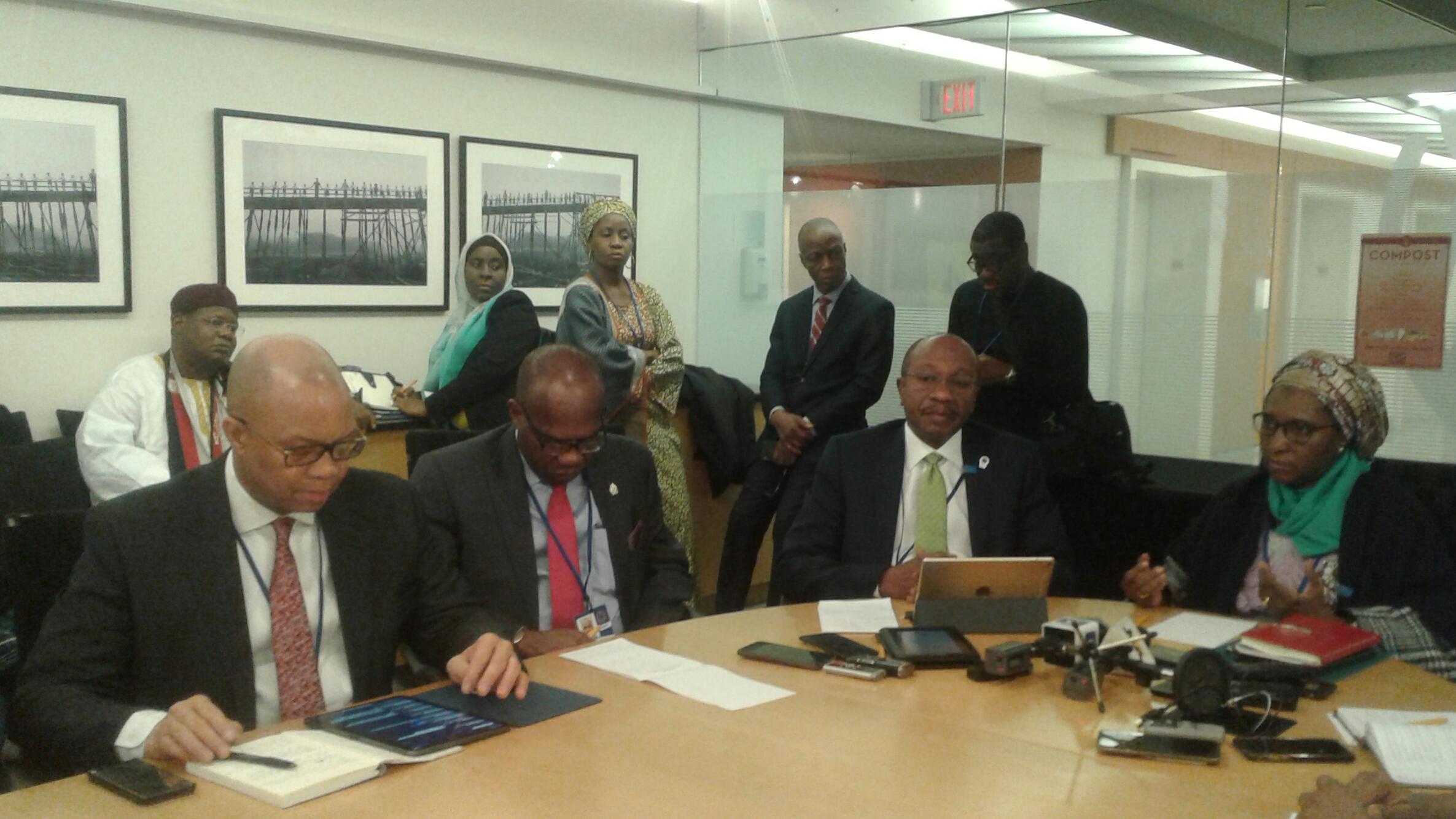BY NKECHI NAECHE ESEZOBOR— IN WASHINGTON DC—-The federal government on Sunday said it has secured $3 billion World Bank loan for the power sector.
Minister of Finance, Zainab Ahmed, disclosed these in Washington DC, United States of America, while addressing the Nigerian media on the outcome of Nigeria’s team engagements at the just concluded 2019 World Bank and the International Monetary Funds, IMF, Annual Meetings.
According to her, the loan will come in four tranches of $750 million each with the first tranche to be approved by April 2020.
she noted that the $3 billion will be deployed to upgrade the transmission network as well as address various challenges in the sector including tariff shortfall and payment of previous obligations that have crystallised.
She said that the government is hopefully it would secure another $1 billion which would be deployed as loans to the electricity distribution companies, Discos.
Her words: “We had very productive meetings with the World Bank group, and the country team on the power sector in Nigeria. The discussion was centred around the power sector recovery program wherein we received an update on the outstanding issues covering sustainable fiscal support, policy as well as regulatory environment.
‘‘We also discussed extensively on the need for the sector to be more operationally efficient, and also the infrastructure investment that would be required to ensure the power sector is restored to full productivity in a manner that is sustainable.
“We identified the imperative of solving two critical problems. One, which is operational efficiency and two, revamping associated infrastructure in the power sector to ensure that the overall success of the intervention in the power sector are achieved
“We made two set of requests to the Bank. The first is technical assistance from the Bank to implementing agencies especially the Nigeria Electricity Regulatory Commission (NERC) on the review of the performance improvement plans of the distribution networks and also two, we asked for technical assistance on business continuity regulation as well as to the Ministry of Finance in the assessment of contingent liabilities in the power sector and options for dealing with them.
“Most importantly, we put a request for financing of the sector at the range of $1.5 billion to $4 billion. At the end of the day, it is like we would be looking at the funding size of $3 billion that will be provided in four tranches of $750 million each.
“Our plan is that the team will be able to go to the World Bank for the approval of the first tranche in April 2020.”
On how the fund will be utilised, she said “The $3 billion that we are trying to raise from the World Bank is for financing the power sector. This financing will include right now, the gap between what is provided for in the current tariff and the cost of the businesses themselves because, there is a tariff shortfall; but it would also enhance our ability to pay the previous obligations that have crystallised that we have not yet been able to pay.
“Some portion of it will be for the transmission network and if we are able to expand the facility to $4 billion, the additional $1 billion is for the distribution network. It will help us to exit the subsidy that is now inherent in the power sector. It is supposed to be to reform the sector, to restore the distribution business side of the sector especially on a stronger footing so that they are freed up enough to go out and raise financing to invest in expanding the distribution network,”she noted.
Also, speaking at the briefing, the Central Bank Governor, Godwin Emefiele, opposed plans by MTN and other telecoms companies to charge their subscribers for Unstructured Supplementary Service Data access to banking services from Oct. 21.
Recall that MTN, in an SMS message to its subscribers, had said the decision was on the request of the banks and would take effect from October 21.
“Yello, as requested by your bank, from October 21, we will start charging you directly for USSD access to banking services.
The announcement, the CBN governor said the bank would not allow that to happen.
“Please, contact your bank for more info.”
Responding to a question seeking his reaction to the announcement, the CBN governor said the bank would not allow that to happen.
“About five, four months ago, I held a meeting with some telecom companies as well as the leading banks in Nigeria at Central Bank, Lagos.
“At that time, we came to a conclusion that the use of USSD is a sunk cost.
“What we mean by a sunk cost is that it is not an additional cost on the infrastructure of the telecom company.
“But the telecom companies disagreed with us. They said it was an additional investment on infrastructure and for that reason, they needed to impose it.
I have told the banks that we will not allow this to happen.
The banks are the people who give this business to the telecom companies and I leave the banks and the telecom companies to engage.
“I have told the banks that they have to move their business, move their traffic to a telecom company that is ready to provide it at the lowest possible, if not zero cost.
“And that is where we stand, and we must achieve it,’’ he said.
The transactions to be affected by the charges include intra- and inter-bank money transfers, through USSD, among others.













